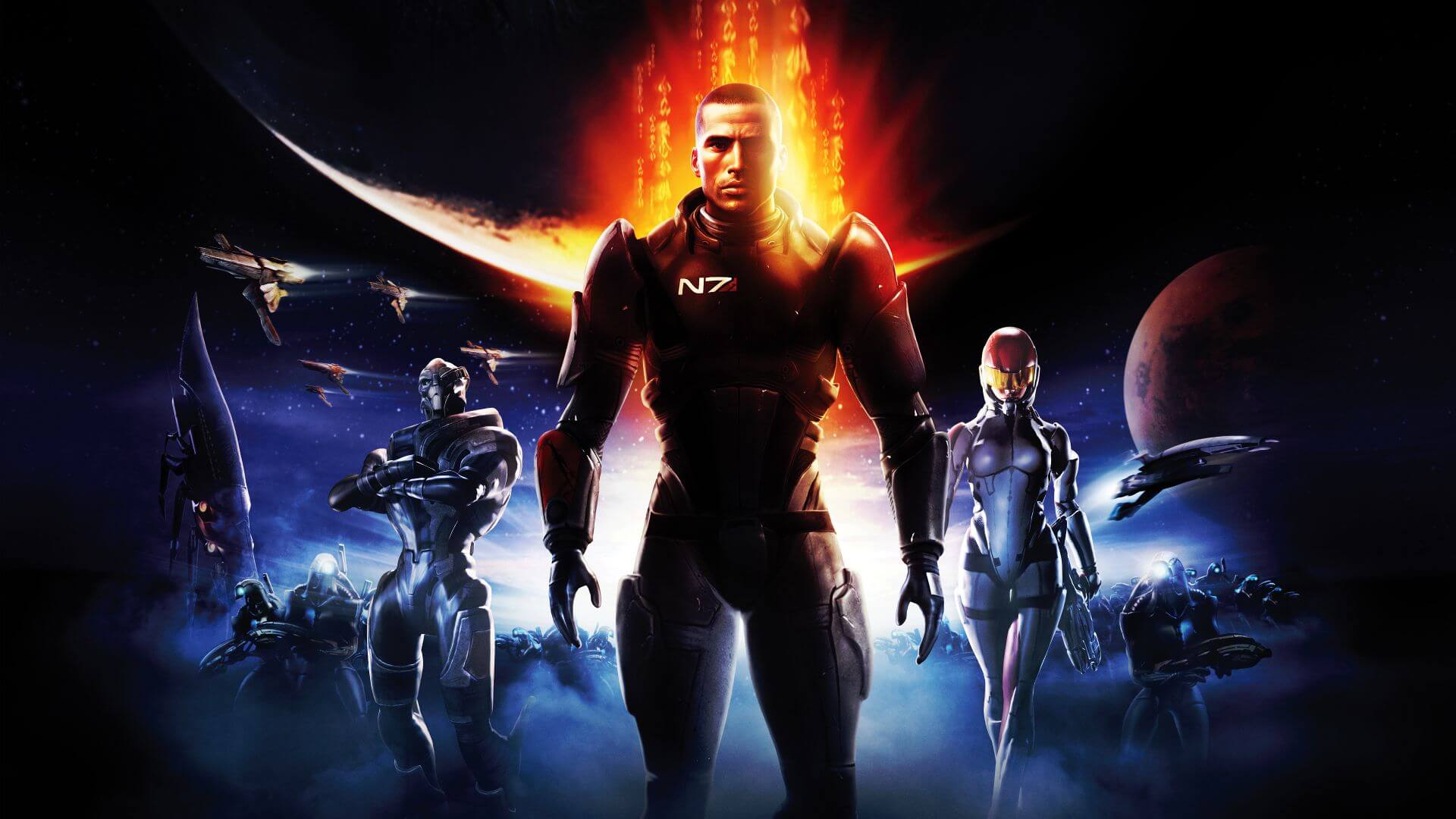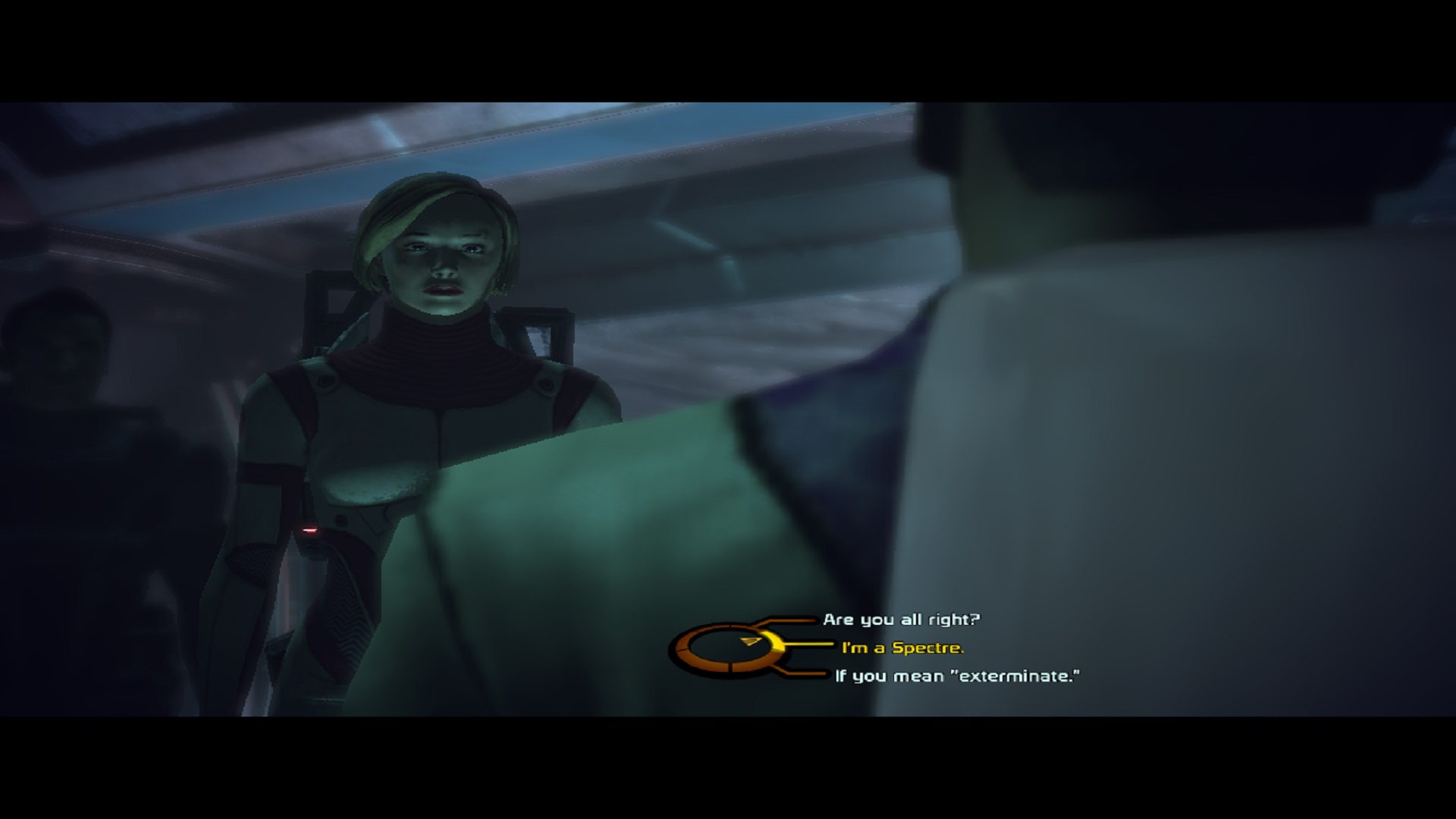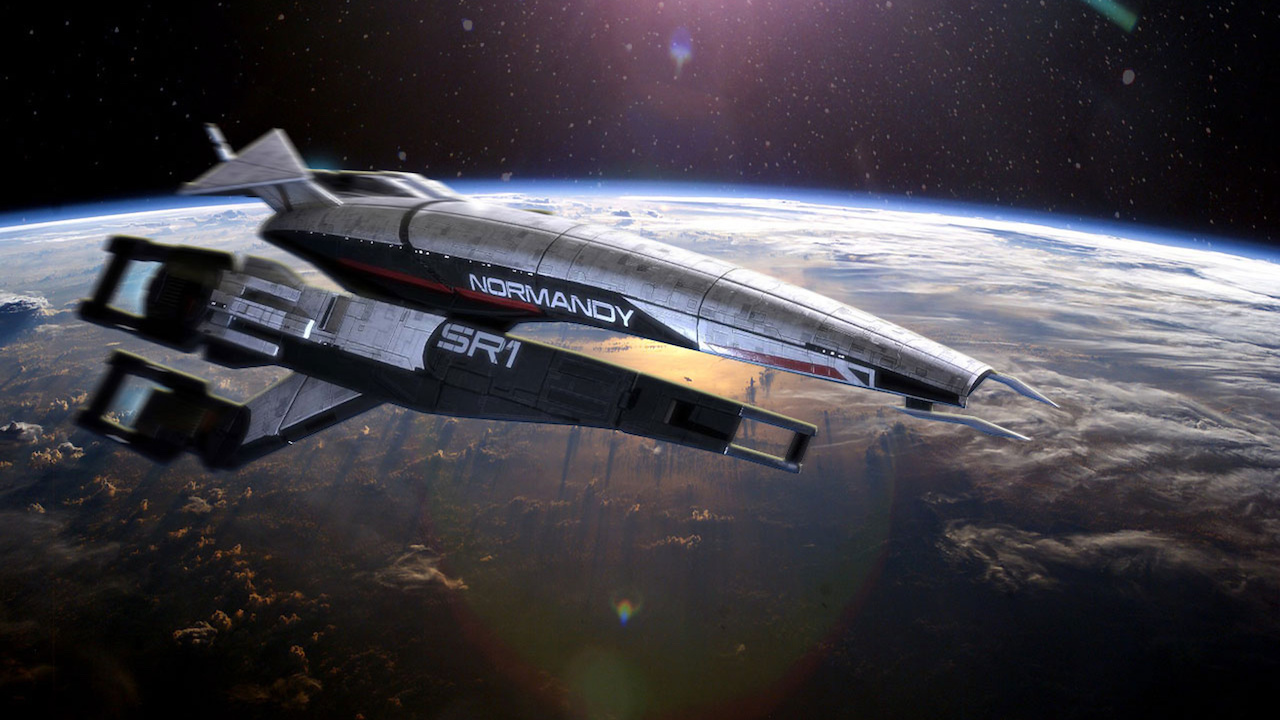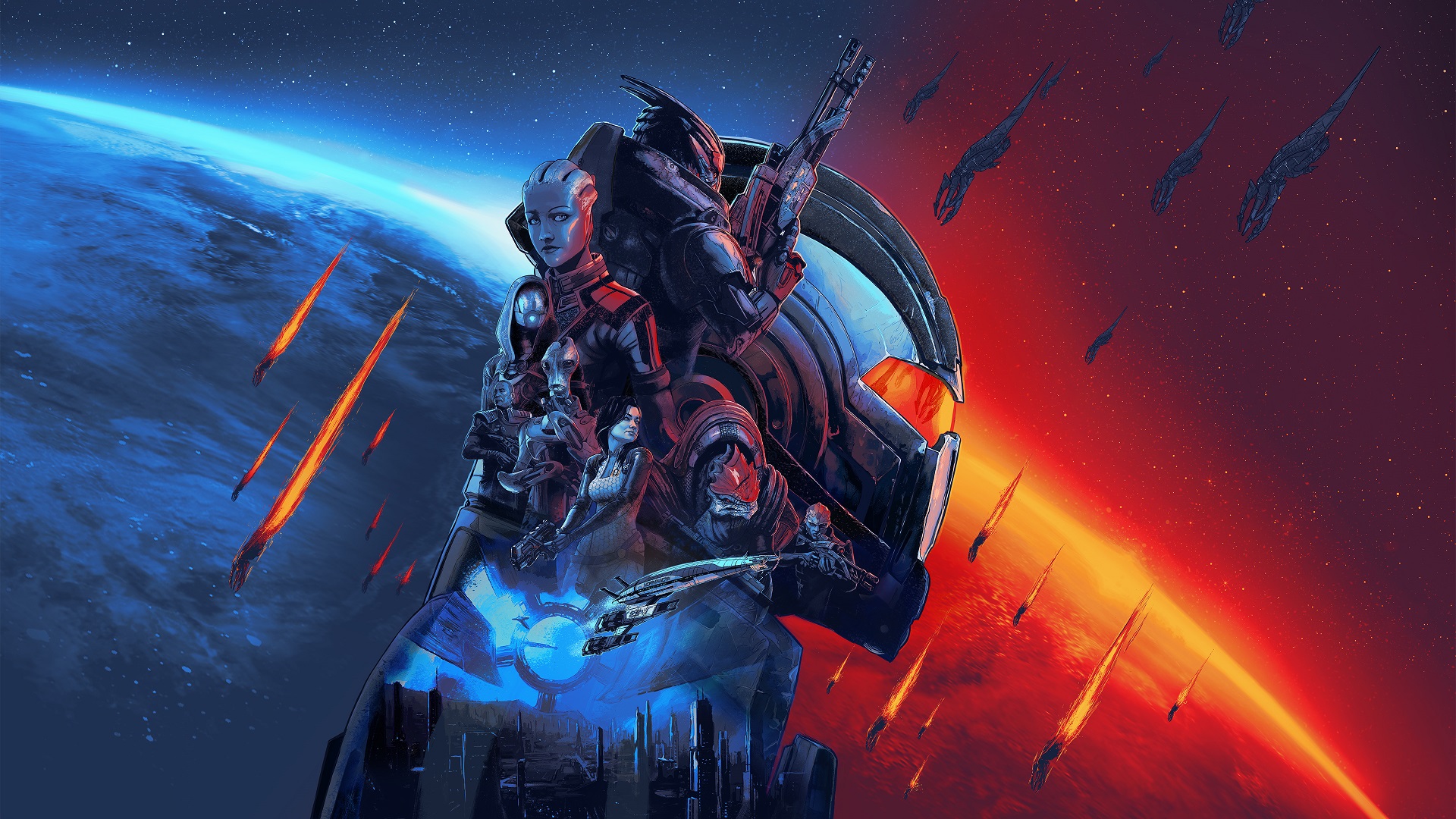Mass Effect retrospective: How BioWare's focus on choice, consequence, and compelling characters helped kickstart an RPG revolution
Don't skip over the game that started it all when you pick up Mass Effect Legendary Edition

An Asari stands before Commander Shepard with a strange glow radiating from her pupils. She begins to speak in a voice that is not her own, and an eerie, otherworldly echo trails off each word. On the cold, icy planet of Noveria, the only remaining queen of an alien species known as the Rachni is being held, and by communicating through this Asari, the Rachni Queen presents you with one of the most morally difficult decisions in Mass Effect. Do you release the last of the Rachni and face unknown consequences, or do you wipe out an entire species by choosing to end the Queen's life? "You have the power to release us, or return our people to the silence of memory," the Rachni Queen says, before a dialogue wheel appears that puts the fate of the alien species in your hands.
The weight of making such decisions is one of the many reasons Mass Effect made such a lasting impression when it was released on the Xbox 360 in 2007. That, and its impressive scope, strong sense of worldbuilding, an incredible amount of branching dialogue, and a cast of memorable characters helped kickstart one of BioWare's most iconic franchises.
Shaping Shepard

On the heels of Star Wars: Knights of the Old Republic and Jade Empire, Mass Effect was a new frontier for BioWare. With development beginning in 2005, BioWare set out to establish an ambitious original IP that would take full advantage of Xbox's hardware as a 360 exclusive. Launching in a year that saw the release of a groundswell of new IP that helped shape the industry as we know it today, Mass Effect landed with the likes of BioShock, Portal, Uncharted: Drake's Fortune, and Assassin's Creed. While BioWare's first entry in the series isn't without its flaws, it was one of the standout releases in 2007, and has arguably become one of the quintessential RPGs of the modern era.
Drawing inspiration from traditional RPG mechanics, BioWare went all-in on creating a role-playing experience that put players at the heart of the action and decision-making. The writing in Mass Effect is one of its biggest strengths, and it's made all the more compelling because of the introduction of the series' signature dialogue wheel. Instead of selecting dialogue options from a list, common of the genre at the time, the dialogue wheel effectively reflected emotional responses or viewpoints that would not only have an effect on the universe of Mass Effect at large but also influence and shape Shepard as a character. In a sense, the wheel is also symbolic of the idea of spinning the wheel of fate, whereby the dialogue choices you select represent the different paths and approaches you can take to navigate through the story.
While the element of choice offers an unparalleled sense of freedom to alter the outcome of events throughout the game, the way the morality system feeds into those choices and influences the personality of Shepard enriches the role-playing experience. What's so interesting about the morality scale is that it isn't so cut and dry. It's not always as distinct as good or evil. With the more diplomatic and compassionate Paragon and the hard-lined Renegade, a lot of the decisions presented don't always hinge on a sense of definitive right and wrong.
As is often the case in Mass Effect, the hardest decisions you have to make can be arguably justified either way. Instead, Paragon and Renegade do more to display the attitude and approach of Shepard, who can be seen as a ruthless commander who just wants to get things done, or someone who's more empathetic to the world around them. The choices that you make throughout this adventure don't just impact the world or the characters, it makes it feel personal – as if the story were being written in real-time for an audience of one.
Aboard the Normandy

It's only through the way in which BioWare creates a fully-realized universe that you truly come to feel the weight of your decisions. By establishing the many planets and alien races that you come to encounter throughout side quests and the main campaign, you're continually reminded of all of the lives at stake and just what it is you're fighting for. So much attention to detail is poured into Mass Effect that it's easy to become invested in the story and care about its outcome, with features such as the codex that bring added depth and richness to its fictional universe.
Sign up to the GamesRadar+ Newsletter
Weekly digests, tales from the communities you love, and more
The characters aboard the Normandy also served to achieve this sense of worldbuilding, since each could establish their own backgrounds, origins, and ideals, if you were willing to invest time in their lives. As a result, the crew members have a part to play in your decision making too. By expressing their own moral viewpoints, party members can often influence your sense of right and wrong, or make you reconsider your choice. BioWare has always excelled at creating characters you come to care about, and Mass Effect took that to the next level.
As one of the earlier exclusives to release in the Xbox 360 HD-era, Mass Effect demonstrated just how big games were becoming and how in-depth they could feel. But it also illustrated some of the limitations of creating such an expansive adventure. The scope and world-building was an impressive feat, but Mass Effect isn't without its flaws – with awkward handling when it came to controlling the Mako planetside, and the lengthy loading times on elevators being the most infamous.
The first adventure with Shepard is held in such high regard because of the malleable nature of its journey and the characters that join you in it along the way. But one element that didn't really hit the same high note is Mass Effect's combat. BioWare was caught between its action ambitions and a desire to stay true to traditional RPG roots, a struggle that manifests itself in Mass Effect's somewhat cumbersome third-person shooting, squad management, and class building. As clunky and finicky as control and mobility could be at times in combat, the Biotic powers worked to keep us engaged and entertained – letting appropriately spec'd players catapult enemies through the air with distorted mass effect fields
Nevertheless, Mass Effect signaled the start of one of BioWare's most successful and influential franchises and proved just what the studio could do as storytellers and crafters of an original adventure set in the expanses of space. From presenting difficult choices such as the decided fate of the Rachni Queen to introducing a cast of memorable characters that have stayed with players throughout the years, Mass Effect had all of the right ingredients to lay down the foundations for a stellar series that continues to influence and impact the video game industry to this day. And with the upcoming arrival of Mass Effect Legendary Edition, new generations of players will be invited to experience the journey with Commander Shepard.
Here are the 10 most interesting improvements and features coming to Mass Effect Legendary Edition. Watch the video below to see a Mass Effect timeline explainer as we wait for Mass Effect 5.

I started out writing for the games section of a student-run website as an undergrad, and continued to write about games in my free time during retail and temp jobs for a number of years. Eventually, I earned an MA in magazine journalism at Cardiff University, and soon after got my first official role in the industry as a content editor for Stuff magazine. After writing about all things tech and games-related, I then did a brief stint as a freelancer before I landed my role as a staff writer here at GamesRadar+. Now I get to write features, previews, and reviews, and when I'm not doing that, you can usually find me lost in any one of the Dragon Age or Mass Effect games, tucking into another delightful indie, or drinking far too much tea for my own good.



